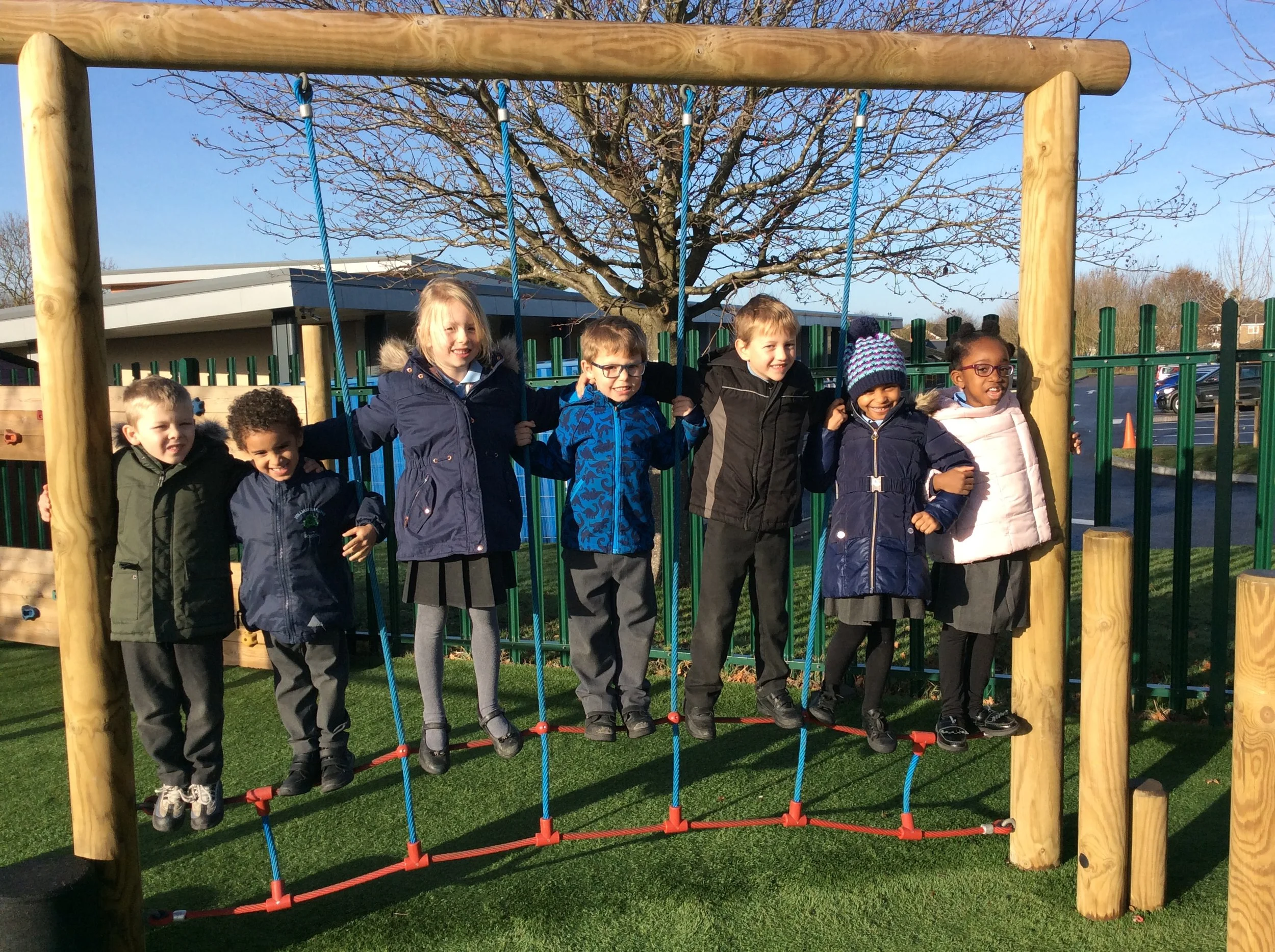Welcome to Year 1
We are delighted to welcome you to the Year 1 web page - this page will develop with more information over the school year. We hope that you will find all the information here that you require, if you have any suggestions we will be pleased to hear from you.
Information
How To Support Your Child Presentation (October 2022)
Phonics Screening Check & RWI Workshop (May 2022)
Year 1 Teachers
The Teachers in Year 1 for the 2022/23 school year are:
Snowdrop - Miss Garner - Year Leader
Foxglove - Miss Robinson
Harebell - Miss Kearns
Rose - Mr Lambourne
Timetables
As part of the transition from the EYFS curriculum into KS1, we develop our timetable through the year. Below are sample timetables that reflect a typical week in Year 1. Please read the current newsletter for details on your child's class’s PE Days.
Spring & Summer Example Timetable
Newsletters
Homework
Aims;
To provide an opportunity for children to reinforce skills, reflect and build upon their learning in the classroom.
To further foster the partnership between home and school for the benefit of the child
To involve parents (and other adults) in pupils’ work
To encourage the development of independent study
To encourage the development of pupils’ organisational skills, self-discipline and confidence
Our expectations in Year 1;
Reading – All children will be given a reading book and reading diary. Books will be taken home daily and at weekends with an expectation that they will be shared/read with/to. Parents are invited to write comments in the reading diary. 10 – 15 minutes daily.
Children will occasionally be encouraged to find out information, bring in books or object of interest or a similar related task pertaining to the study being carried out.
Our Homework policy can be found here.
Weekly Spellings (all year)
Spelling
Here you can find the common exception words from Year 1. Children are expected to know how to spell these words to help improve their writing.
Phonics
In Year 1 we focus on the decoding, blending and segmenting of words to support children’s developments in reading and spelling. As the progress with their reading the focus turns to fluency in reading, which supports the children’s comprehension skills. We use ‘Read Write Inc’ to teach phonics in Year 1, so you will hear the children refer to ‘Fred Talk’ (using sounds to sound out and decode words), and ‘Fred Fingers’ (using our fingers to help segment words for spelling).
For more information on RWI, please click here.
Reading Rocks
We promote reading at home with our ‘Reading Rocks’ initiative. Class teachers will check the reading record books each week and award Dojo points to individual children accordingly and the class with the most points at the end of the half term will win a prize! Children read in school everyday during RWI lessons and have opportunities to choose books during the Early Bird session and in COOL time and choosing. Teachers and TAs will listen to individual children read as often as the needs of each child requires. Therefore, it is important for each child to have their reading book and record book in school with them every day, even if they are not yet ready to change it. Reading Rocks points are checked on a Friday.
Choosing
As part of the transition from Early Years to Year 1, children in Year 1 participate in Choosing where we continuing with our learning, within classrooms and outside areas throughout Autumn 1.
This is a progressive step from the continuous provision of free flow in Reception to a more formal learning environment and timetable at the end of Year 1.
Practical, play-based and creative activities are planned for each area of the curriculum, and the children are able to choose between them and adapt them as their own. The environment includes a role play area and the activities match the theme and learning taking place within the classroom.
Over the course of the year the structure and expectations of Choosing adapts to suit the needs of the children, as they develop their learning skills. This may be different each year depending on the needs of the cohort.
Knowledge Organisers
Knowledge organisers give an overview of what pupils will be learning in school over the course of their History, Geography or Art unit of work for the half term. Pupils have a copy of this in their Curriculum books to refer to within lessons. The Knowledge Organisers for each half term are available for you to download below so that you can support your child in discussing with them what they have been learning this week and build upon this learning at home, if you wish to do so.
Knowledge Organiser Art Summer 1
Knowledge Organiser Geography Summer 1
Knowledge Organiser Science Summer 1
Knowledge Organiser Science Spring 2
Knowledge Organiser DT Spring 2
Knowledge Organiser History Spring 2
Knowledge Organiser Art Spring 1
Knowledge Organiser Geography Spring 1
Knowledge Organiser Science Spring 1
